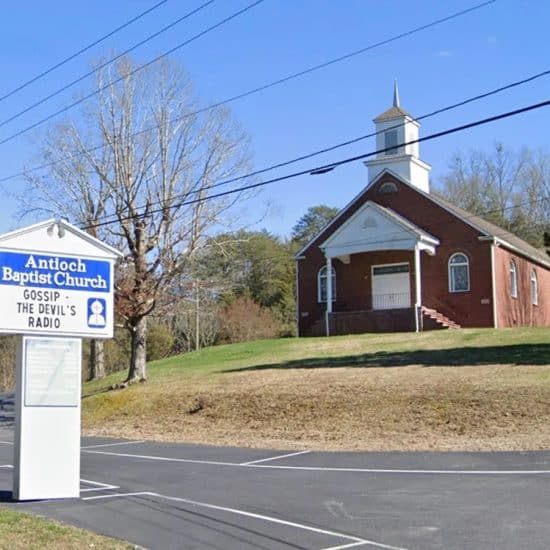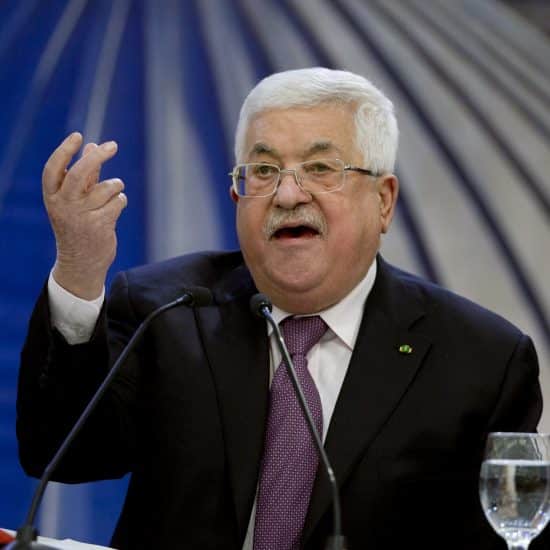NASHVILLE, Tenn. (ABP) — Former Southern Baptist Convention President Frank Page is being nominated as president of the SBC Executive Committee, one of three key leadership positions in the nation's second-largest faith group in the process of being filled.
According to Baptist Press, Page, 57, is the unanimous recommendation of a seven-member search committee seeking a successor to Morris Chapman, who retires Sept. 30 after 18 years in the leadership post that oversees operations of the denomination and recommends and disburses its annual budget.
Page, a pastor for 30 years before becoming vice president of evangelization for the North American Mission Board in October 2009, will be presented for election at a meeting of the Executive Committee June 14 in Orlando, Fla., just prior to the SBC annual meeting June 15-16 at the Orange County Convention Center.
If elected, Page, chosen from 16 nominees and six finalists, could face tough choices if the convention approves recommendations of a Great Commission Task Force appointed last year by current convention President Johnny Hunt.
One proposal calls for increasing the Cooperative Program allocation for the International Mission Board from 50 percent to 51 percent while reducing the Executive Committee allocation by 1 percent.
The shift of $2 million would increase the IMB's budget by less than 1 percent, while reducing the Executive Committee's current $6.95 million budget by nearly 30 percent.
Chapman wrote recently expressing "grave concerns" that the report, which also recommends recognizing a new category of "Great Commission Giving" broader than the Cooperative Program, would devalue the unified funding mechanism in use since 1925.
Jerry Rankin, who retires in July after 17 years as president of the International Mission Board, welcomed the "token" step of breaking the "50 percent barrier" for funding of the IMB but said it doesn't go far enough.
Rankin said in a recent blog that he fears Southern Baptists will embrace the spirit of the Great Commission Task Force recommendations but continue trying to do everything the convention is currently doing.
"We must see what truly fulfilling the Great Commission entails," he wrote. "It means sacrificing a lot of what we are currently doing, including the traditional structure and programs with which we are familiar. Are we not willing to give it up and make some changes for the sake of a lost world for which Christ gave His life?"
Page, a member of the Great Commission Task Force bringing the recommendations, said May 18 he could not comment on the subject.
A third key leadership spot, president of the North American Mission Board, has been under interim leadership since Geoff Hammond resigned last August over leadership differences with the agency's board of trustees.
One of the Great Commission Task Force proposals is to "unleash" the North American Mission Board to take a lead role in church-planting and evangelism work now done in conjunction with Baptist state conventions through cooperative agreements. Several state convention executives have said doing away with the cooperative agreements would make it impossible for them to afford staff positions currently jointly funded with NAMB. Some have suggested the state conventions would simply reduce the percentage of Cooperative Program receipts they forward to national causes in order to keep those jobs funded.
Dwight McKissic, a prominent African-American pastor from Texas, said recently he believes one of the three leadership posts at the Executive Committee, IMB or NAMB ought to be filled by a minority to send a message that the SBC is serious about racial reconciliation. Like every current SBC agency head, Page is white.
Page, SBC president from 2006 to 2008, was considered a dark-horse candidate when he defeated two denominational insiders on a first ballot at the 2006 convention in Greensboro, N.C. He introduced himself to media as an "irenic conservative" and "an inerrantist" who is "just not mad about it."
Observers viewed his election as signaling a desire for a more open leadership process and as a referendum of support for the Cooperative Program. Page's church at the time, First Baptist Church of Taylors, S.C., was a leading CP supporter in the South Carolina Baptist Convention, while his opponents were both pastors of mega-churches with a relatively low percentage of budgets going to the Cooperative Program.
It also marked the first time for a candidacy to gain word-of-mouth momentum in the months leading up to the annual convention largely through the use of Internet blogs.
Page told the Florida Baptist Witness he was humbled by the nomination and hoped he could help unify a Southern Baptist constituency fragmented by various controversies.
A native of North Carolina, Page is a graduate of Gardner-Webb College (now university) who earned the M.Div. at Southwestern Baptist Theological Seminary in 1976. He completed a Ph.D. at Southwestern in 1980 with a dissertation that advocated full inclusion of women in ministry, including ordination as pastors.
Page claimed to have recanted those views, which he described in 2006 as "rather extreme" and the product of an "immature theologian," shortly after graduating and said he now supports the 2000 Baptist Faith and Message article that says, "While both men and women are gifted for service in the church, the office of pastor is limited to men as qualified by Scripture."
-30-
Bob Allen is senior writer for Associated Baptist Press.



